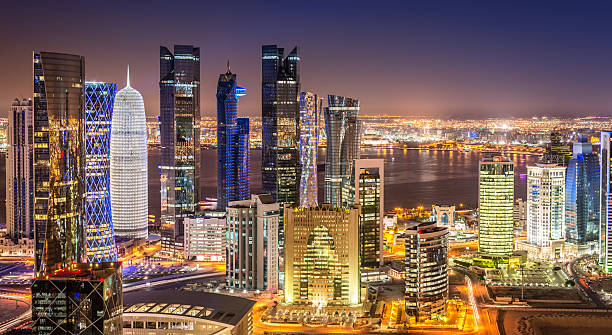
Qatar
Qatar is the richest country in the world as measured by GDP per capita. Qatar is home to over 100 nationalities. Safest country in the world by NUMBEO (lowest on crime index). In 2024, the national airline Qatar Airways became the best airline in the world 8 times, and was also recognized as the best business class in the world, the best business class in the world and the best airline in the Middle East. Hamad International Airport (HIA) has been awarded World’s Best Airport, the most prestigious award at Skytrax 2024. Qatar exports vast quantities of oil and natural gas, accounting for over 97% of Qatar’s exports – worth over $58 billion in total. Qatar has been the first Middle Eastern country to host a number of large-scale sporting events. These include:
- 2006 Asian games
- 23rd World Corporate Games in 2019
- 17th World Championships in Athletics in 2019
- FIFA World Cup™ in 2022
- FINA World Swimming Championships in 2023
- Asian Games 2030
Buying real estate in the country for $1 million entitles investors to the benefits of permanent residency, including free schools and healthcare.
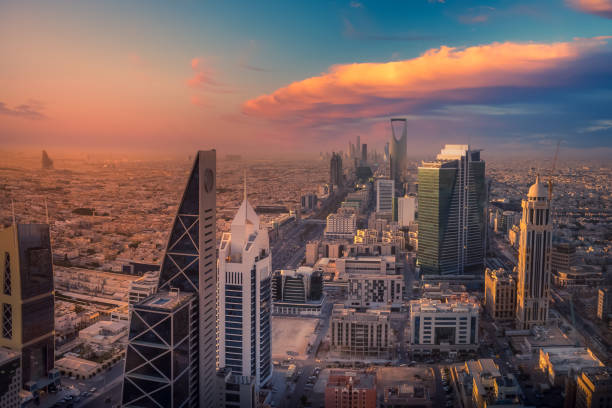
Saudi Arabia
The country occupies about four-fifths of the Arabian Peninsula. Saudi Arabia is also the largest country in the Middle East. It's the birthplace of Islam. It's a country full of young people. Two-thirds of Saudi Arabia’s population is under 35. The King Fahd International Airport in Dammam City in Saudi Arabia is the largest in the world. The country is building the largest unique line in the world - NEOM, which will change views on business, technology and greenness. Tourism is booming because the country has a lot to offer from luxury hotels with swimming pools and private concierges to large shopping malls where you can buy anything you want to ancient historical sites that you have never seen before.
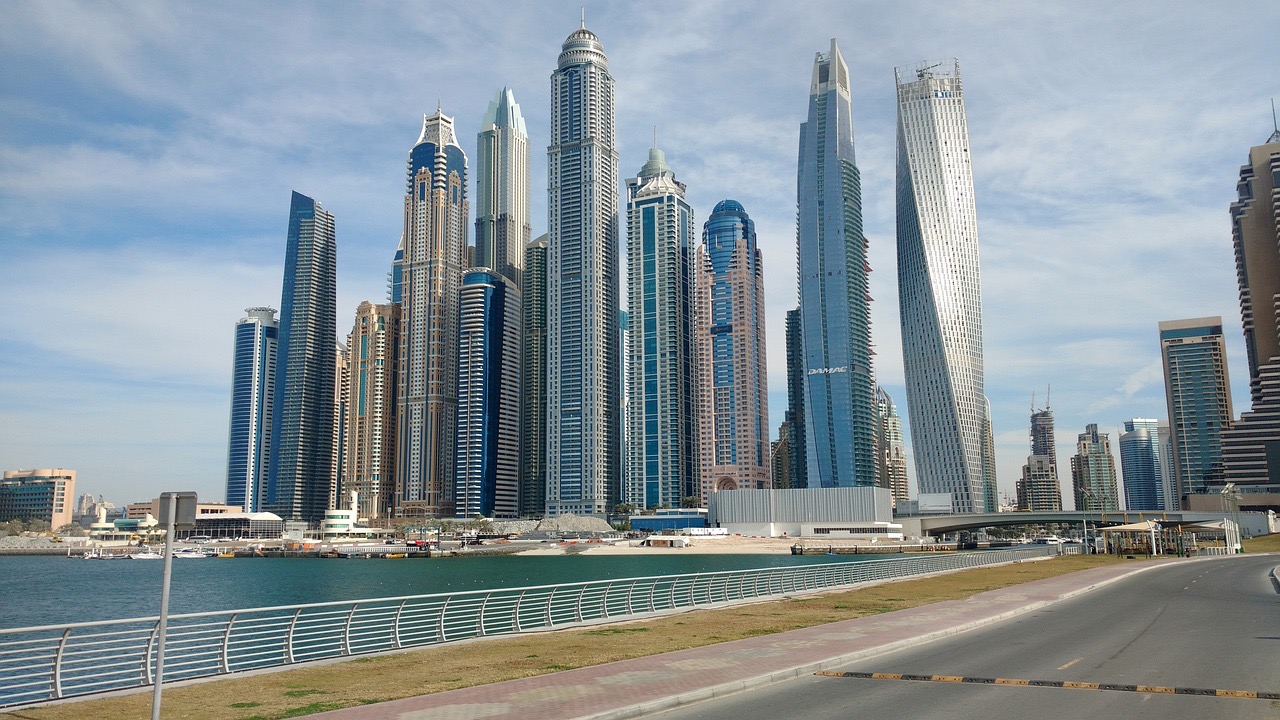
UAE
A different royal family rules each of the seven emirates in the UAE. The most famous and influential among all are the Al Nahyan of Abu Dhabi and Al Maktoum of Dubai. The UAE has emerged as the top global destination for companies focusing on innovation and artificial intelligence, entrepreneurship, and attracting foreign investment, leading to improved rankings on international indicators related to business and investment attractiveness. The country offers 40 free zones for setting up a business, which allow foreign investors to own 100 per cent of their companies, and the country offers investors flexibility in choosing the appropriate free zone in which to establish their companies. The UAE will become the world's #1 "wealth magnet".
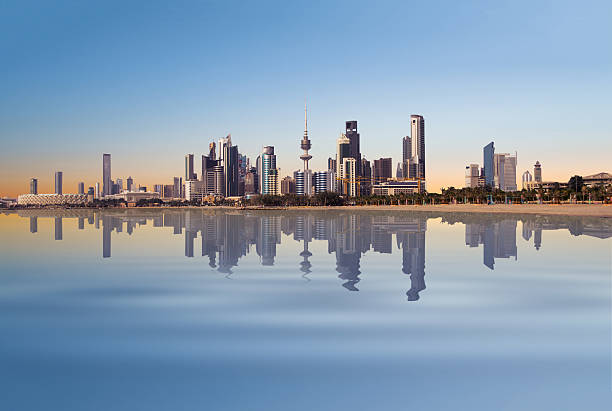
Kuwait
The world's second largest sandstone oil field is located in Kuwait. Kuwait has the largest opera house in the Middle East. The JACC or Sheikh Jaber Al-Ahmad Cultural Centre is an opera house and a cultural center located in Kuwait City. Kuwait requires a minimum capital of 1,000 Kuwaiti dinars ($3,300) for LLCs, 100,000 Kuwaiti dollars ($325,978) for joint stock companies, and 1,000,000 Kuwaiti dollars ($3,259,780) for PJSCs. Minimum capital requirements for branches of foreign companies no). Kuwait taxes corporate income earned by companies operating in its jurisdiction. As of the cut-off date in September 2021, the corporate tax rate in Kuwait is 15%. This rate applies to both resident companies and non-resident companies engaged in commercial, industrial or professional activities in the country.
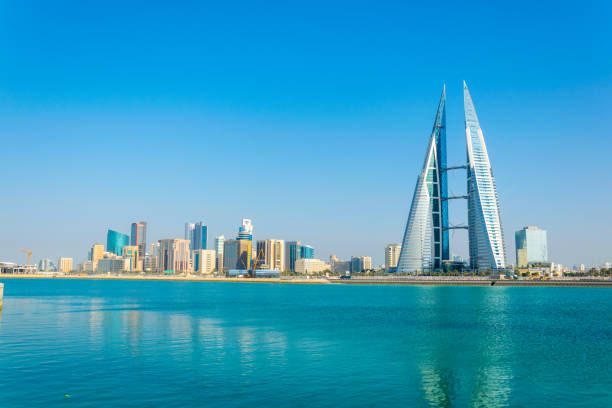
Bahrain
Bahrain’s size or lack thereof might throw you for a loop. The country was originally made up of 33 islands, but intensive land reclamation has increased this figure to 84 islands. Land reclamation also increased the country’s land area by 38 square miles. The Gulf nations takes third place for the smallest countries in Asia. Along with other members of the Gulf Cooperation Council (GCC), Bahrain is an oil-dependent country that is diversifying its economy. Bahrain is among the richest countries in the world based on GDP per capita, with a GDP per capita of $29,146. The oil sector contributed about 18% of Bahrain’s GDP. Bahrain ranked among top 10 global business climate improvers in the World Bank’s Doing Business 2020 report. Bahrain has free trade agreements with 22 countries, investment protection & promotion agreement with 34 countries, and double taxation avoidance agreements with 41 countries. Bahrain actively seeks to attract foreign investors through laws and regulations that facilitate foreign entry into the market. While maintaining necessary measure to protect national security, almost 95% of commercial activities could be licensed to foreign individual investors, and fully owned by foreign nationals. A limited range of commercial activities are restricted however, which require at least 51% of Bahraini ownership. Bahrain has a government that supports business and is committed to creating an enabling environment for entrepreneurs. The country has a low corporate tax rate and a number of free zones where businesses can be opened with minimal red tape. The government also offers a number of incentives and subsidies to attract foreign investment.
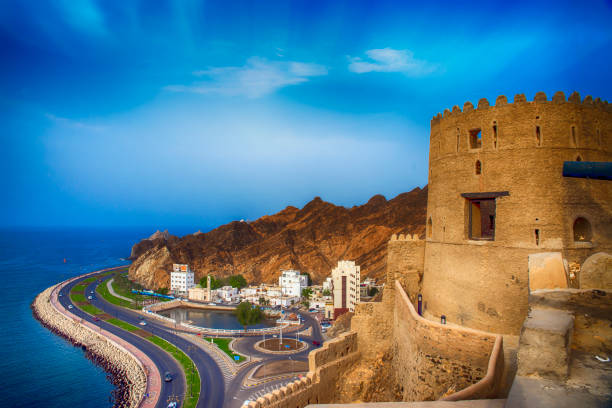
Oman
Oman has made significant progress in promoting economic development and improving living standards, but the hydrocarbon sector continues to dominate economic activity. Oman occupies a fairly high place in the list of oil exporters. It sits on top of huge oil reserves that will last for a couple of centuries. Oman's GDP is largely fueled by this and the ever-growing tourism industry. Due to this, all the expenses of the state are covered and covered. Which aims to get a lot of incentives for its citizens, including tax exemptions. Hotels in Oman have redefined luxury and offer an impressive level of service recognized worldwide. Having four UNESCO World Heritage Sites is no big deal. It's phenomenal. Bahla Fort, the archaeological sites of Bat, Al-Khutm and Al-Ain, the Al-Aflaj irrigation systems and the Land of Incense are heritage sites owned by Oman.
Irrigation systems show irrigation methods used as far back as 500 AD. Archaeological monuments are the remains of settlements and towers of the Bronze Age. The remains of Bahl Fort, including the stone foundation, are still intact and have survived to this day. Land of Frankincense, show the path that merchants took to trade that eventually led to success.
SOME FACTS ABOUT THE PERSIAN REGION
- Being one of the fastest growing economies in the world, the region welcomes foreign investors to set up companies in the Gulf region. The driving force of every businessman is the dream of being a successful entrepreneur. To run a successful company anywhere, it is necessary to have a good knowledge of the local business in the Persian Gulf countries and the latest economic laws of the country.
- The Arab monarchies, with their richest reserves of oil and gas, which, according to forecasts, will last for more than a dozen years, it would seem, should have little interest in the development of alternative sources of energy. However, this is far from the case. In the region, many large projects using solar, wind and biomass energy are being implemented and are being prepared for launch. The activity of implementing these initiatives was somewhat slowed down by the global financial crisis and political unrest in a number of countries in the region. But generous government support quickly put renewable energy projects back on track.
- The countries of the Cooperation Council of the Arab States of the Persian Gulf have an excellent opportunity to become world leaders in the production and export of renewable energy sources, according to experts. Solar and wind energy have extremely high potential in this regard, the presence of which will ensure the profitability of electricity production.
- In recent years, the real estate market in the region has experienced significant growth and development, mainly due to a growing economy and favorable government policies. The sector has become a key source of the country’s GDP and attracts foreign investment.
- The real estate market in the region is a dynamic and ever-evolving industry driven by several factors, including economic growth, government policies, infrastructure development and population growth. The sector has seen significant growth in recent years with a positive outlook for the future.
- Under its Vision 2030 strategy, the GCC is investing heavily in megaprojects and digitization initiatives. This has fueled huge demand for the latest technologies and prompted large-scale adoption of digital transformation initiatives in both the public and private sectors, accelerating the spread of IT services in the country.
- IT service providers play a key role in this ongoing transformation and have a great opportunity to demonstrate their skills and capabilities in new technologies. Saudi Arabia’s IT market is the fastest growing in the region.
- Qatar’s cyber security strategies have helped create a secure environment for digital transformation, investment and growth. The country is establishing itself as a global leader in cybersecurity thanks to a strong regulatory framework and cybersecurity policy designed to ensure strong national digital security.
- Coupled with a skilled workforce and policy framework, Qatar’s cyber security capabilities have been enhanced through the creation of effective infrastructure and technology. Cloud technologies offered in data centers play a critical role in helping organizations protect against today’s cyber threats while meeting regulatory requirements.
- The State of Qatar will spend $45 billion to expand the tourism sector by 2030 as part of the National Tourism Sector Strategy 2030, making it the fastest growing market in the region. The HORECA and F&B sectors are expected to reach USD 13.6 billion by 2026, creating numerous opportunities for suppliers in the hospitality industry.
- The technology landscape in the UAE is experiencing constant growth. The regional government is actively investing in technology and innovation as part of efforts to diversify the country’s economy away from oil dependence.
- By 2027, the IT services market in the UAE will grow to $10.3 billion thanks to digital transformation initiatives. The adoption of cloud technologies is driving demand, with cybersecurity issues playing a key role. The Software as a Service (SaaS) market size in the UAE is projected to grow at a CAGR of 27.93%, eventually reaching USD 30.52 billion by 2029.
- Kuwait is one of the fastest growing emerging markets due to high purchasing power associated with infrastructure projects, retail industry, and strong trade and oil industries. Kuwait’s retail sector has expanded significantly due to the development of shopping malls.
- Kuwait is one of the richest countries in the world. Rapid urbanization, an influx of foreign labor and the rise of the young and affluent are key factors driving Kuwait’s retail industry. E-commerce and online shopping are also growing in Kuwait, as a large percentage of the population is under the age of 25 and the country’s social media and internet penetration is among the highest in the GCC.
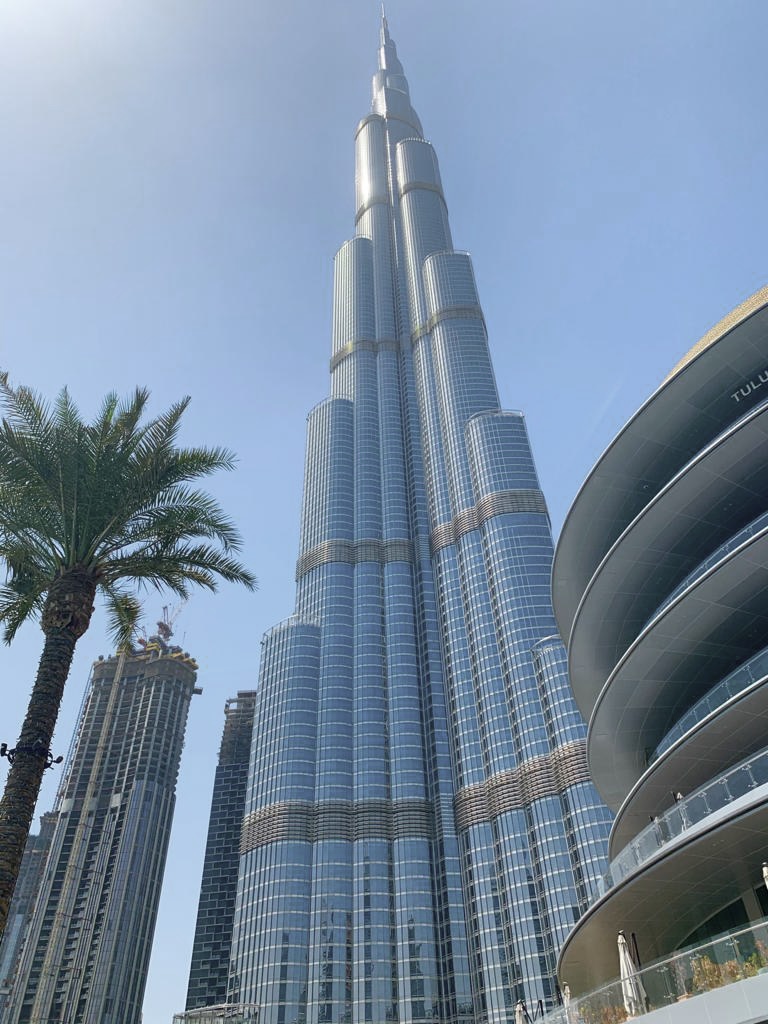
Types of company formation
- Limited Liability Company (WLL)
- Public Shareholding Company
- Sole Establishment
- General Partnership Company
- Limited Share Company
- Joint Venture
- Offshore
- FreeZone Company Registration
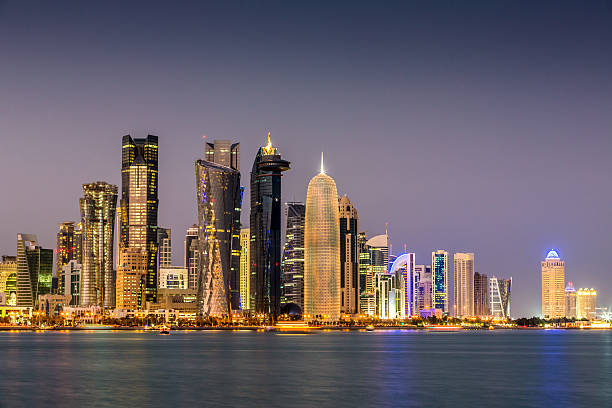
Company registration in the Persian Gulf countries takes about 5-7 days, but the time may vary depending on the type of business and required permits. It all depends on the type of license, for example, if you want to work in the mainland, you can get a license within 24 hours. If you do want to do business in freezones, it will take longer. But compared to other countries, this is the shortest term for obtaining a license.
